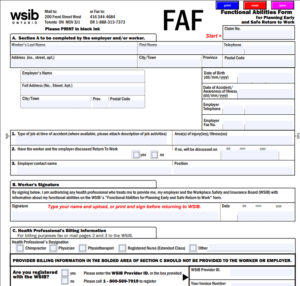In our fast-paced and demanding work environments, maintaining optimal mental health is crucial for overall well-being and productivity.
Balancing work-related pressures, deadlines, and interpersonal dynamics can be challenging, but with a proactive approach, you can foster a positive work environment that supports your mental health.
This article presents practical tips and strategies to help you cultivate a healthy mindset and well-being while at work.
Prioritize Self-Care
Begin by recognizing the importance of self-care in maintaining mental health.
Prioritize activities that nourish your mind, body, and soul. Engage in regular exercise, practice mindfulness or meditation, get sufficient sleep, and eat nutritious meals.
Establishing a self-care routine will help you better manage stress and increase resilience.
Set Boundaries
Maintain a healthy work-life balance by setting clear boundaries.
Establish specific working hours and stick to them as much as possible. Avoid checking work-related emails or messages outside of these hours, allowing yourself to fully disconnect from work.
By creating boundaries, you protect your personal time, which is vital for relaxation and rejuvenation.
Practice Time Management
Effective time management can significantly reduce work-related stress.
Prioritize your tasks by creating a to-do list or using project management tools. Break down complex tasks into smaller, more manageable segments, allowing you to focus on one thing at a time.
Avoid multitasking, as it can lead to decreased productivity and increased mental strain.
Foster Positive Relationships
Cultivating positive relationships with colleagues can contribute to a supportive work environment.
Seek opportunities for collaboration, offer assistance to others when possible, and engage in open and constructive communication.
Surrounding yourself with positive and supportive individuals enhances job satisfaction and promotes mental well-being.
Take Regular Breaks
Don’t underestimate the power of breaks throughout the workday.
Stepping away from your desk or workspace for a few minutes can help reduce stress and enhance productivity. Engage in activities that relax and recharge you, such as taking a short walk, practicing deep breathing exercises, or engaging in a hobby.
These breaks allow your mind to rest and replenish, leading to improved focus and mental clarity.
Manage Workload and Expectations
Sometimes, workplace stress stems from an overwhelming workload or unrealistic expectations.
Be proactive in managing your workload by communicating with your supervisor or team members. Discuss deadlines, priorities, and available resources to ensure a more balanced distribution of tasks.
Setting realistic expectations for yourself and others promotes a healthier work environment and helps prevent burnout.
Seek Support and Feedback
If you find yourself struggling with work-related stress or mental health concerns, don’t hesitate to seek support.
Reach out to trusted colleagues, friends, or family members who can provide guidance and a listening ear.
Many workplaces offer employee assistance programs or counseling services that can provide professional support when needed.
Practice Mindfulness
Incorporate mindfulness into your work routine to promote mental well-being.
Take short mindfulness breaks throughout the day, focusing on your breath or engaging in brief meditation sessions.
Mindfulness helps increase self-awareness, reduce stress, and improve concentration, allowing you to approach work tasks with greater clarity and focus.
Summary
Prioritizing your mental health at work is crucial for maintaining overall well-being and maximizing your productivity.
By incorporating these tips into your daily routine, you can foster a positive work environment, reduce stress, and enhance your mental resilience.
Maintaining optimal mental health is an ongoing process, so be patient and kind to yourself as you navigate the challenges of the workplace.
FAQs:
How can I communicate my boundaries effectively to my colleagues?
Answer: When communicating boundaries to your colleagues, it’s important to be clear, assertive, and respectful.
Clearly communicate your working hours and let them know that you won’t be available outside of those hours unless it’s an emergency. Use assertive language and emphasize the importance of maintaining work-life balance.
It may also be helpful to have a conversation with your supervisor or HR department to ensure that your boundaries are understood and respected.
What should I do if my workload becomes overwhelming despite my efforts to manage it?
Answer: If your workload becomes overwhelming despite your efforts to manage it, it’s important to address the issue proactively.
Schedule a meeting with your supervisor or team members to discuss your concerns. Be prepared to provide specific examples of tasks or projects that are causing excessive stress. Together, explore potential solutions such as redistributing tasks, adjusting deadlines, or delegating responsibilities.
Effective communication and collaboration are key in finding a manageable workload.
How can I maintain positive relationships with colleagues who may not be supportive or positive?
Answer: While it’s ideal to have positive relationships with all colleagues, it’s not always possible.
In situations where you encounter colleagues who are not supportive or positive, it’s important to focus on maintaining professionalism and setting boundaries. Limit your interactions with negative individuals as much as possible and avoid engaging in gossip or negativity. Seek out like-minded colleagues or supportive networks within the organization to help maintain your own well-being.
You have control over how you respond to difficult situations.
Are there any additional resources or programs available in the workplace to support mental health?
Answer: Many workplaces offer additional resources and programs to support mental health.
Employee assistance programs (EAPs) often provide counseling services, referrals to mental health professionals, and resources for stress management. Check with your HR department or company intranet to learn about available mental health support programs or initiatives.
Some companies also organize workshops or training sessions focused on mental well-being and resilience.
What can I do if I experience burnout despite implementing self-care practices?
Answer: If you find yourself experiencing burnout despite implementing self-care practices, it’s important to address the situation promptly.
Take a step back and evaluate your self-care routine to ensure that it’s truly meeting your needs. Consider seeking professional help from a therapist or counselor who can provide guidance and support. It may also be necessary to reevaluate your work situation and consider making changes, such as adjusting your workload, seeking a different role within the organization, or exploring new career opportunities.
Prioritizing your well-being is essential, and sometimes it requires making difficult decisions to protect your mental health.






